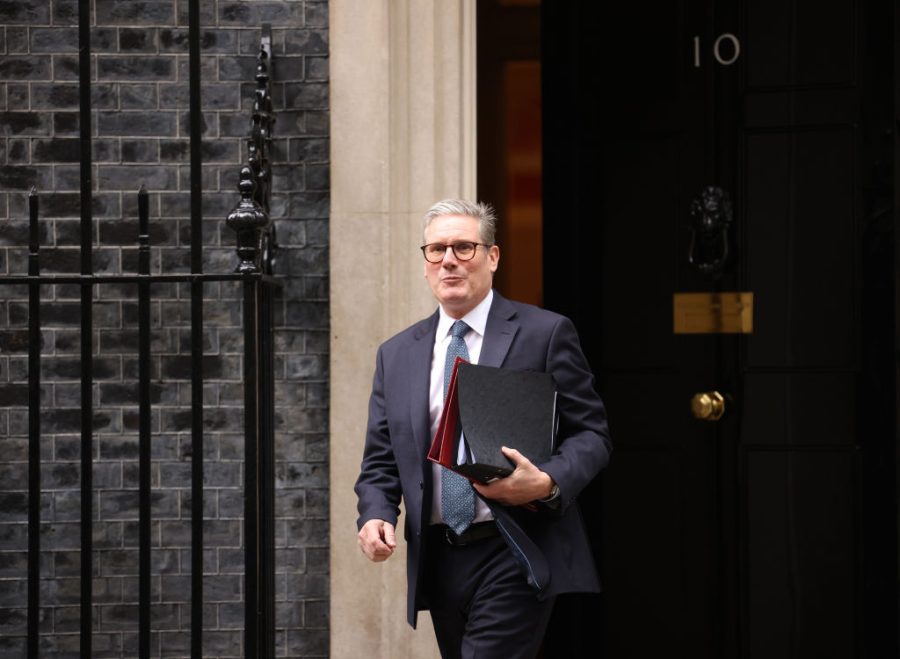In Labour’s manifesto this year, Keir Starmer cannily sought to reassure any Brexiteers out there by ruling out a return to the EU single market. But, being a lawyer, he carefully inserted a small-print proviso. The Labour leader said that he did not rule out doing much the same thing by realigning Britain piecemeal with EU standards as opportunity presented itself.
This process he has now started. As the eagle-eyed Lord Frost pointed out yesterday in the House of Lords, the government’s boring-sounding Product Regulation and Metrology Bill is something of a Trojan horse. While it generally covers product safety and weights and measures, a sneakily-inserted Clause 1(2) also expressly allows the government to import wholesale EU regulations on products’ environmental impact for no better reason than that they are – well – EU regulations.
Labour is, it seems, playing a long game here
Lord Frost is, of course, right. This case needs to worry us for a number of reasons.
First, this clause is not limited to products for export to the EU: on the contrary, it explicitly applies to all goods put on the UK market. This is a big change. Although goods for export are for obvious reasons subject to EU requirements, an important benefit of Brexit has been to return to manufacturers and importers dealing purely with the domestic market their freedom to ignore the EU. This freedom is now at risk. At a stroke of a minister’s pen – a stroke which a Remain-leaning Labour minister will, one suspects, be only too happy to make – they can be made to comply with the laws of an institution we are not members of and where their goods will never go.
Moreover, the EU law that can be imported includes the general EU-enabling power allowing further regulation, thus automatically binding manufacturers here to follow future changes in EU law which neither they nor the UK government have had any hand in drafting. The suggestion by the Labour business minister Lord Leong that this involves simply ‘taking back control, seeking closer, more mature trading partnerships with the EU’ is disingenuous in the extreme. If he genuinely thinks that, which is highly doubtful, I might have a bridge to sell him.
Secondly, this is no small or technical matter. The corpus of EU regulations about controlling the environmental impact of products is enormous and ever-growing: its effect on small to medium manufacturers and importers is wide-ranging and often remarkably restrictive. It is a mark of this government’s cavalier disregard of the small to medium business sector that such matters do not appear to worry it at all.
There is a strong suspicion that the Product Regulation and Metrology Bill is merely a start. It looks much like a Labour ballon d’essai, aimed at softening up parliamentarians, business and voters for further efforts at integration, carefully chosen because it is difficult to argue against environmental protections.
Interestingly enough, this year’s Labour manifesto gave as an example of what they might like to import from the EU. Not environmental regulations, but something different: animal and plant safety provisions. In practice, these laws permeate much of food and farming. As such, their importance dwarfs even EU product rules on the environment: while not involving integration with EU agriculture, they at times get close to it. It would not be surprising if, assuming Labour irons out any problems with the Product Regulation Bill, they casually attempts to import the EU animal and plant safety regulations wholesale. One could expect them to argue that this is merely continuing a process of straightening out relations with Europe, and that besides, the plan was there in the manifesto for anyone to see.
Labour is playing a long game here. Its sensible strategists know that an honest Rejoin proposal will not fly, if only because it risks losing Red Wall supporters wholesale to Reform. It was this demographic, after all, who only voted for it last time for want of a better alternative. What Labour planners are hoping for instead, one suspects, is a gradual but discreet increase in de facto EU control. This would leave Britain more and more in the position of an EU rule-taker like Norway or Switzerland.
Such a position has a number of advantages for Keir. First, it would keep the Remainer wing of the party quiet, even if not entirely satisfied. Secondly, it would allow for a good deal of government through behind-the-scenes agreements with the EU, which saves ministers the trouble of having to justify their policies to parliament or the electorate. And lastly, if and when the present government falls, it would allow it to present a tangled web of directly-applicable EU law to its successor. This would be very difficult for a future administration to unravel and encourage a feeling among voters that the effort simply isn’t worth the candle.
This plan is actually quite a good one, but it does depend on not too many people noticing. It is now up to supporters of Brexit to foil it by pointing out exactly what is going on, that it is something we never voted for, and that it needs to be opposed tooth and nail.







Comments